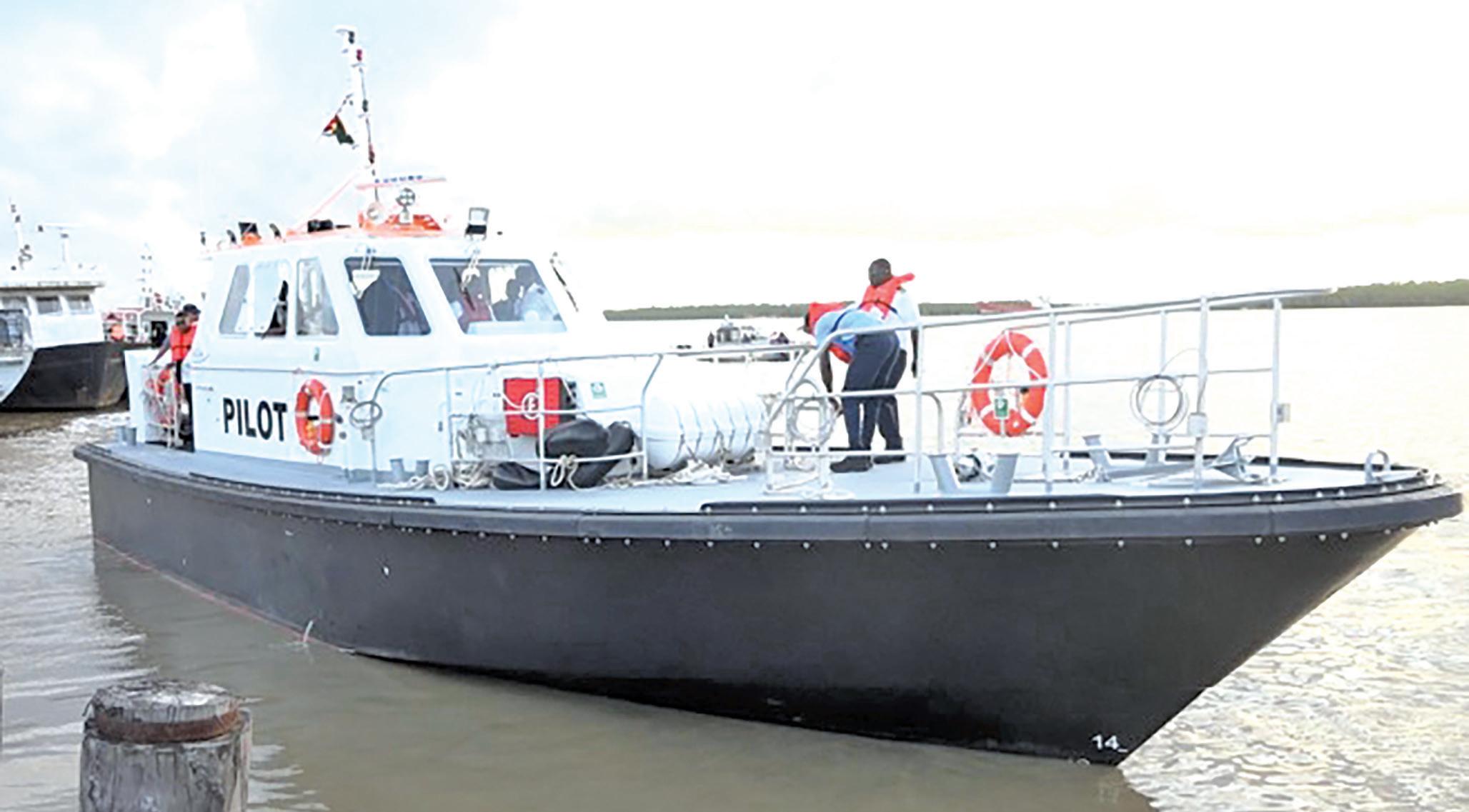
6 minute read
with $535M vessel
...as Pres Ali commits to equipping agency to lead modernisation of local maritime sector
In keeping with efforts to modernise the local maritime sector in order to support Guyana’s growing economy, the Maritime Administration Department (MARAD) has received a brand new $535 million pilot boat that will enhance its operations.
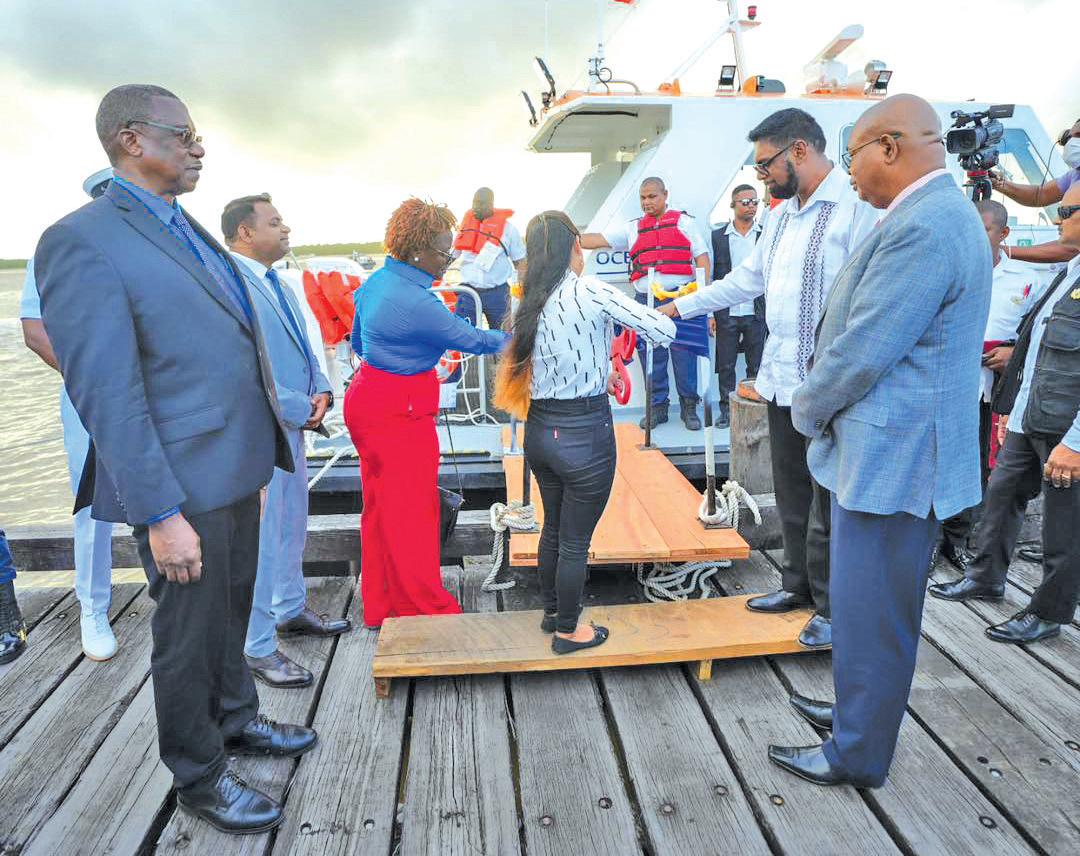
The vessel, Pilot Boat Arapaima, was custom-built in France by Ocea Shipbuilding and Industries to meet the needs of MARAD.
The contract, which was signed in December 2021, also includes one-year warranty, technical support and training for local officers.
According to MARAD Director General, Captain Stephen Thomas, the arrival of this new vessel is the “dawn of a new era of pilotage in Guyana”, since these services have been limited by the absence of safe and reliable pilot boats.
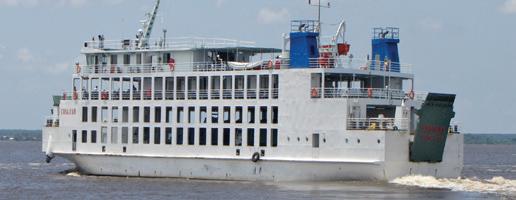
These vessels are used to transport marine pilots onboard large vessels that they have to pilot inbound and outbound throughout Guyana’s waterways.
Thomas explained that the Department was in dire need of a new vessel especially, since its fleet currently has a 75-year-old vessel; another aged vessel which was acquired since the ear- with one of the most modern pilot boats in the world… It’s well suited to operate in constrained and extreme conditions of navigation and manoeuvrability… and is capable of operating at high speed,” the MARAD Head said at the commissioning of the Arapaima on Wednesday afternoon at the Coast Guard Headquarters.
In fact, Public Works Minister Juan Edghill also posited at the ceremony that the 26 knots maximum-speed vessel will significantly enhance the piloting operations of MARAD.
“This vessel will significantly reduce the time it opment.

“With this increasing amount of maritime traffic and commerce taking place, it is crucial that we have effective systems to ensure that everything is running smoothly and safely... and this is precisely why this vessel was acquired,” Edghill stressed.
Modernising maritime sector
Meanwhile, President Dr Irfaan Ali, who was present at Wednesday’s commissioning, pointed to his Government’s commitment towards modernising the local maritime sector to keep up with the rapid growth of prove navigational services on vessels entering our main river port. The acquisition of the Arapaima is a continuation of our efforts to give MARAD a fleet of modern, reliable, fuel-efficient vessels that are capable of serving the needs of the shipping community and facilitating a modern marine sector,” he asserted.
On this note, the Head of State announced plans to acquire additional vessels for MARAD as well as enhance training of personnel. This will complement other initiatives that have been undertaken by Government to advance the maritime sector. These include updating the country’s hydro-graphical charts; improving maritime navigational tools and aides – for which over $1 billion has been invested over the past two years; strengthening the capacity of MARAD to manage the sector with some $1.6 billion allocated to acquire new equipment such as a tug; and improving port management.
Additionally, they are also focusing on adopting a strategic rather than reactive approach to the development of the maritime sector with the creation and implementation of a National Maritime Strategy in tandem with a Commonwealth Marine Plan, among other initiatives being put in place.
Moreover, President Ali further outlined that on the security front, Government is looking at using the country’s waterways to widen policing efforts.
“We are also… working to better utilise our riverways as express highways for fast response in terms of crime.
As you know, the Demerara River gives us the opportunity to run the entire coast… ly 1980s and was “slow and unreliable” as well as a much newer vessel, acquired in 2018 under the then A Partnership for National Unity/Alliance For Change (APNU/AFC) Government, that has been plagued with issues since its arrival, resulting in hundreds of millions of dollars being spent to keep it operational.
So, the Guyana Police Force and the national security architecture is looking at utilising the river as our fastlane highway, responding to crime and security threats.
“We’re now equipped takes for pilots to reach the ships out in the open waters,” the Minister stated.
He noted that Guyana’s water traffic was increasing rapidly, with some 2800 ships requiring piloting in 2022 – a figure that has already been surpassed thus far this year. On this note, the Public Works Minister underscored the important role that MARAD plays in the country’s economic devel- the country’s economy.
He noted that this “sizable investment” in Guyana’s maritime administration was in line with the vision for a country equipped with modern navigational systems that meet international standards.
“This commissioning of the vessel is part of my Government's ongoing programme to modernise our navigation systems and im-
So, that's an additional added value that the maritime sector as a whole will be bringing in the modernisation of Guyana,” the Head of State outlined.
He added, “The modernisation of Guyana's maritime sector is moving full speed ahead. MARAD is helping to lead this push… [and] implementing our vision of a safe, modern and efficient maritime sector.” (G8)
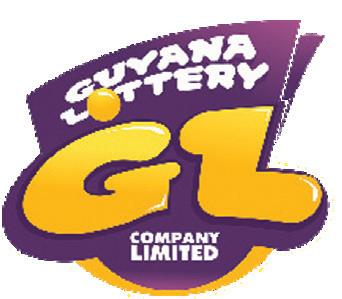
Editor: Tusika Martin
News Hotline: 231-8063
Editorial: 231-0544, 223-7230, 223-7231, 225-7761
Marketing: 231-8064 Accounts: 225-6707
Mailing address: Queens Atlantic Investment Estate Industrial Site, Ruimveldt, Georgetown Email: news@guyanatimesgy.com, marketing@guyanatimesgy.com

April and Autism: “Transforming the Narrative”
April is Autism Awareness Month, also referred to by some people as Autism Acceptance Month. Autism, or autism spectrum disorder, is characterized by challenges with social skills, communication and repetitive behavior.
This year’s theme is “Transforming the Narrative: Contributions at Home, Work, in the Arts, and Policymaking.”
Joined by the international community, hundreds of thousands of landmarks, buildings, homes and communities around the world, light blue in recognition of people living with autism. Autism-friendly events and educational activities take place all month to increase understanding and acceptance and foster worldwide support. World Autism Awareness Day can trace its roots back to November 1st, 2007. This is when the UN first requested that a day be established as World Autism Day. This resolution was passed and on December 18th of 2007.
According to the United Nations, there has been major progress over the past decade, in increasing access to education especially for persons with autism.
The UN stated that as a result of the COVID-19 pandemic, which caused countries to temporarily close schools has impacted on more than 90 per cent of students worldwide. The disruption, the UN has stated had caused learning to be reversed and “years of progress and has exacerbated inequalities in education.”
This has caused students with autism to be hard hit and studies now show that they have been “disproportionately affected by disruptions to routines, as well as services and supports that they rely on.”
World Autism Awareness Day (WAAD) aims to put a spotlight on the hurdles that people with autism – and others living with autism – face every day. As a growing global health issue owing to its increasing exposure in the press and common knowledge, autism is an issue that is only gaining more understanding – and WAAD activities are planned every year to further increase and develop world knowledge of children and adults who have autism spectrum disorder (ASD).
As more people become aware of the autism spectrum, more parents reach out for answers. More awareness leads to more knowledge and greater visibility. More people who aren’t living with autism learn to accept, and respect, people who are. At present, there is no official statistics on the number of autistic children and other persons in Guyana; government officials should therefore be keen to acquire the numbers to better understand the complex disorder that affects communication and behaviour.
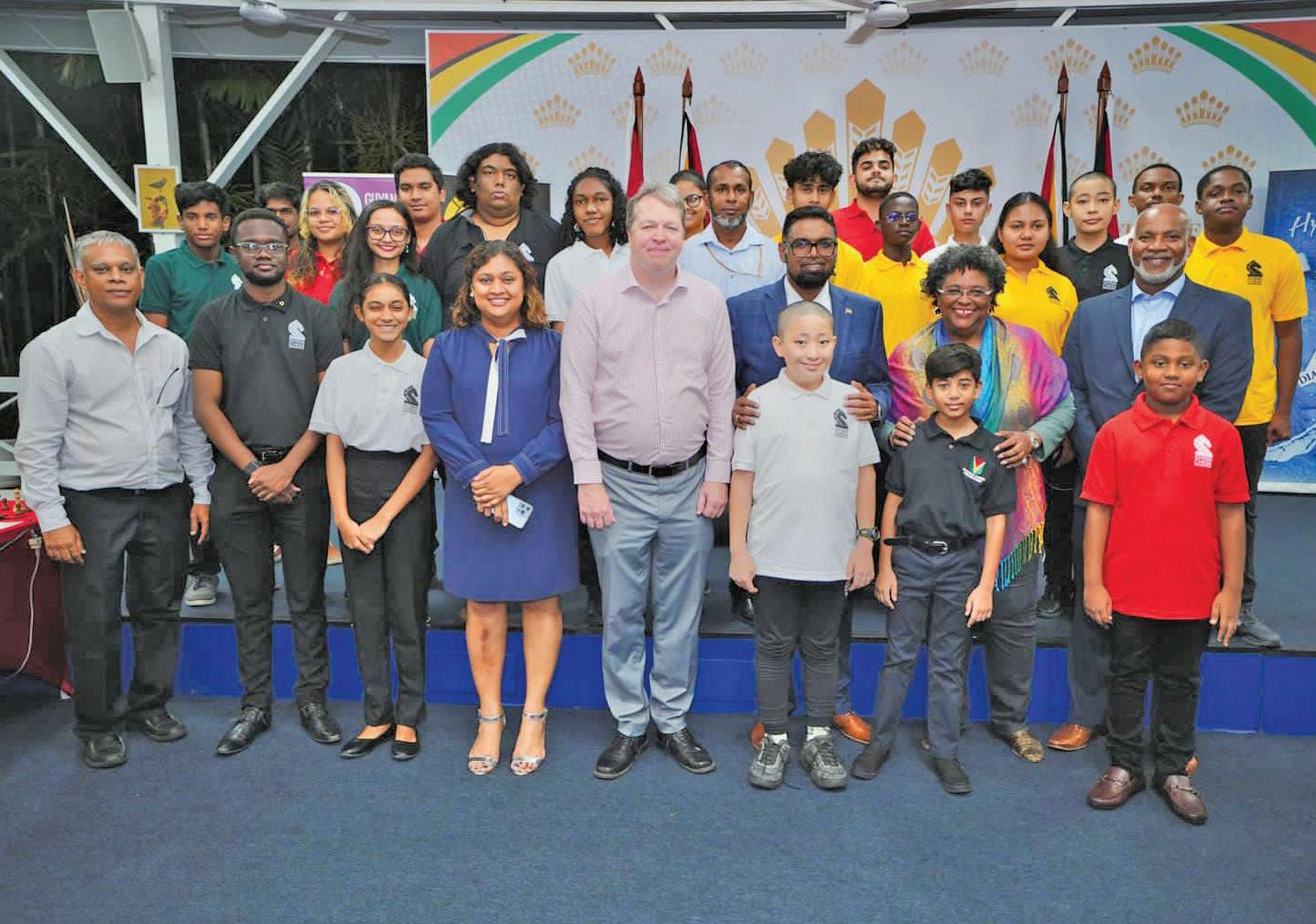
Autism Spectrum Disorder is a neurological disorder that typically appears during the first years of life and affects the development of the child in three broad areas: communication skills, social skills, and repetitive or rigid behaviors. As reflected in the name, children with autism spectrum disorder vary greatly in terms of the level and type of impairment in the areas of social, communication, and behavior, as well as the strengths with which they present within each of these areas. Current statistics suggest that approximately 1 in 88 children has an autism spectrum disorder.
The rate of autism in all regions of the world is high and the lack of understanding has a tremendous impact on the individuals, their families and communities.
Further, stigmatisation and discrimination associated with neurological differences remain substantial obstacles to diagnosis and therapies, an issue that must be addressed by both public policy-makers in developing nations, as well as donor countries.
While there are several local companies who already make autism causes a part of their charitable giving, there are many who haven’t yet jumped on board, please consider doing so. Autism is real. It affects us all. It needs not only our understanding, but our support. More importantly, those on the spectrum deserve our understanding and support. This disorder affects males and females of all races in all parts of the world.









